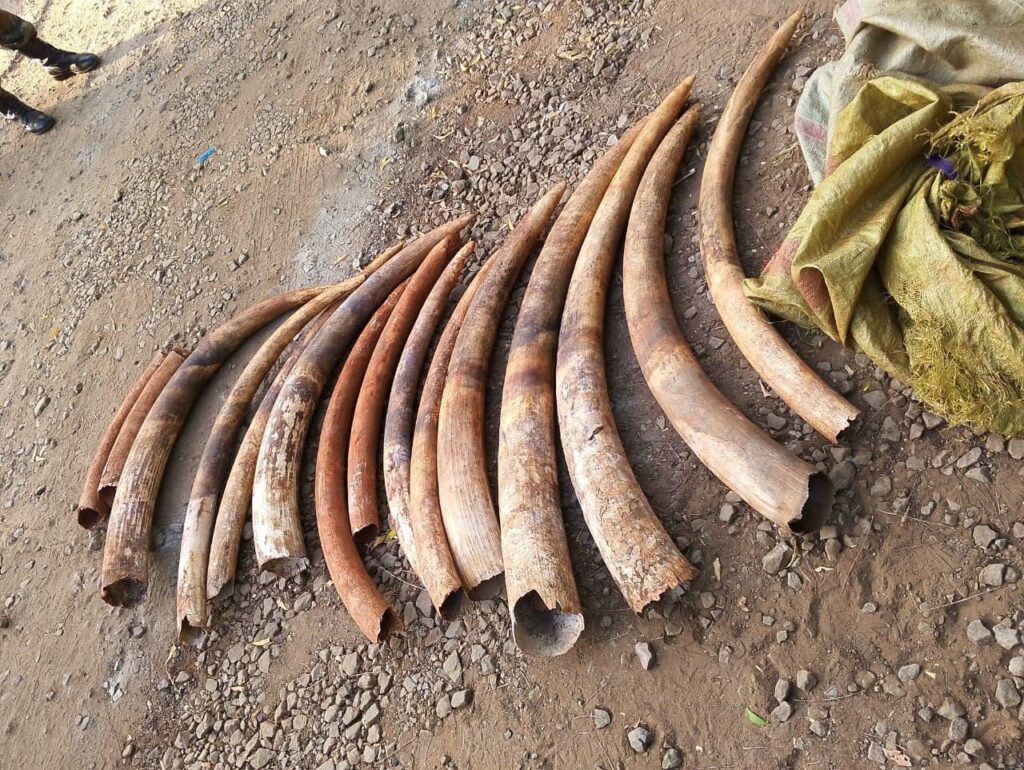Authorities in Kwale county have arrested three men found in possession of elephant tusks valued at Sh700,000. The suspects were nabbed in Lunga Lunga while waiting to meet a potential buyer who, according to investigators, failed to show up.
The three men had reportedly traveled from Samburu county, over 500 kilometers away, carrying six pieces of ivory weighing about seven kilograms. Investigations suggest the tusks were to be used as samples for a larger consignment expected from Samburu. Police and Kenya Wildlife Service (KWS) officers, acting on intelligence, intercepted the suspects before the deal could be completed.
Following the arrest, the men were detained for questioning and are expected to be arraigned in court to face charges of being in possession of wildlife trophies of endangered species, an offence under Section 92(4) of the Wildlife Conservation and Management Act 2013. Officials say further investigations are ongoing to determine the source of the ivory and whether additional tusks remain hidden.
The incident highlights the persistence of the ivory trade despite strict measures by Kenyan authorities to combat poaching. Elephant tusks continue to fetch high prices on the black market, with demand in Asia and the Middle East driving the illicit trade. This has fueled poaching across Africa, posing a serious threat to elephant populations and conservation efforts.
Kenya has taken significant steps to fight poaching, including the use of high-tech surveillance such as drones, intelligence-led operations, and stronger inter-agency collaboration. Public awareness campaigns and community engagement initiatives have also been scaled up to discourage locals from aiding poachers.
These measures have shown results. In 2020, Kenya recorded zero cases of rhino poaching for the first time in nearly two decades. The government has also demonstrated its commitment to ending the trade by staging symbolic ivory burns, the most notable being in 2016 when 105 tonnes of elephant ivory and 1.35 tonnes of rhino horn were destroyed.
Despite these achievements, challenges remain. Kenya’s geographical position makes it a key transit hub for illegal ivory shipments from central and eastern Africa destined for international markets. Experts stress that sustained vigilance, strict enforcement, and regional cooperation are essential to dismantle trafficking networks and safeguard wildlife for future generations.

